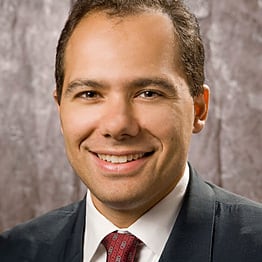This sort of out-of-the-box thinking is what we need.
Occupational licensing started with the idea that jobs with serious consequences – doctors being the prototypical example – require some sort of government certification and oversight. But that rather innocuous motivation has ballooned into a harmful and unsustainable state of affairs.
Fortunately, the Supreme Court has offered some hope.
From laws requiring licenses to braid hair to ones requiring licenses for floral design and casket manufacturing, occupational licensure has put barriers in the way of people who wish to do non-dangerous jobs and has done little to protect consumers. Instead, it’s frequently used as a way for politically well-connected people and state licensing boards to freeze out their competition, a textbook example of regulatory capture. The end result makes it harder for people to find fruitful employment, particularly low-income workers who often don’t have the time or money to get licenses.
Fortunately, the Supreme Court has offered some hope for those who don’t want needless barriers thrown their way when they want to make a living.
In 2014, the Court held in North Carolina State Board of Dental Examiners v. Federal Trade Commission that a licensing board that had banned non-dentists from offering teeth-whitening services had violated federal antitrust laws – and that all licensing boards do the same when they engage in anticompetitive practices. (This was incidentally the first and only case in which Cato filed a brief supporting the federal government.) The Court further clarified that licensing boards have antitrust immunity if they’re subject to “active supervision” by the state in question.
States can get around this requirement by simply rubber-stamping everything done by the licensing boards, undermining the intended procompetitive effects of the decision in the process. In addition, there are valid concerns that the decision undermined state sovereignty in light of the fact that under Parker v. Brown, 317 U. S. 341 (1943), the Sherman Antitrust Act doesn’t apply to state government agencies.
An innovative proposal would give states incentives to reform their licensing laws.
Sen. Mike Lee (R-UT), who chairs the judiciary committee’s antitrust subcommittee, has been thinking about these issues and last week unveiled an innovative proposal. Joined by Sen. Ted Cruz (R-TX) and Sen. Ben Sasse (R-NE), Lee introduced legislation that would give states incentives to reform their licensing laws by giving them paths to immunity from liability.
S.1649, or the “Restoring Board Immunity Act,” establishes a limited exemption for state licensing boards under antitrust law, but conditions that exemption on a state’s implementing one of two reforms.
Option one is for a state to establish day-to-day supervision of licensing authorities through a new occupational-licensing oversight board, which would periodically review occupational regulations. Option two is for a state to create a cause of action that would allow for judicial review of occupational-licensing laws under a standard of intermediate scrutiny – requiring the state to prove that a licensing law meets that standard should it be challenged in a court of law, and award attorney fees in successful challenges.
The bill is not perfect. The “Office of Supervision” created to supervise the licensing authorities that are mentioned in Section 5 of the bill may be subject to similar public-choice and regulatory-capture problems as the current licensing boards, for example.
It nonetheless represents a massive improvement over current occupational-licensing regimes. It provides an incentive for states to reform their laws and helps clarify the NC Dental case to ensure that states can’t simply rubber-stamp whatever licensing boards do.
This sort of out-of-the-box thinking is what we need from both Congress and state legislatures to ensure that all Americans can earn an honest living without needless interference from those claiming to protect them.
Reprinted from Cato Institute.




